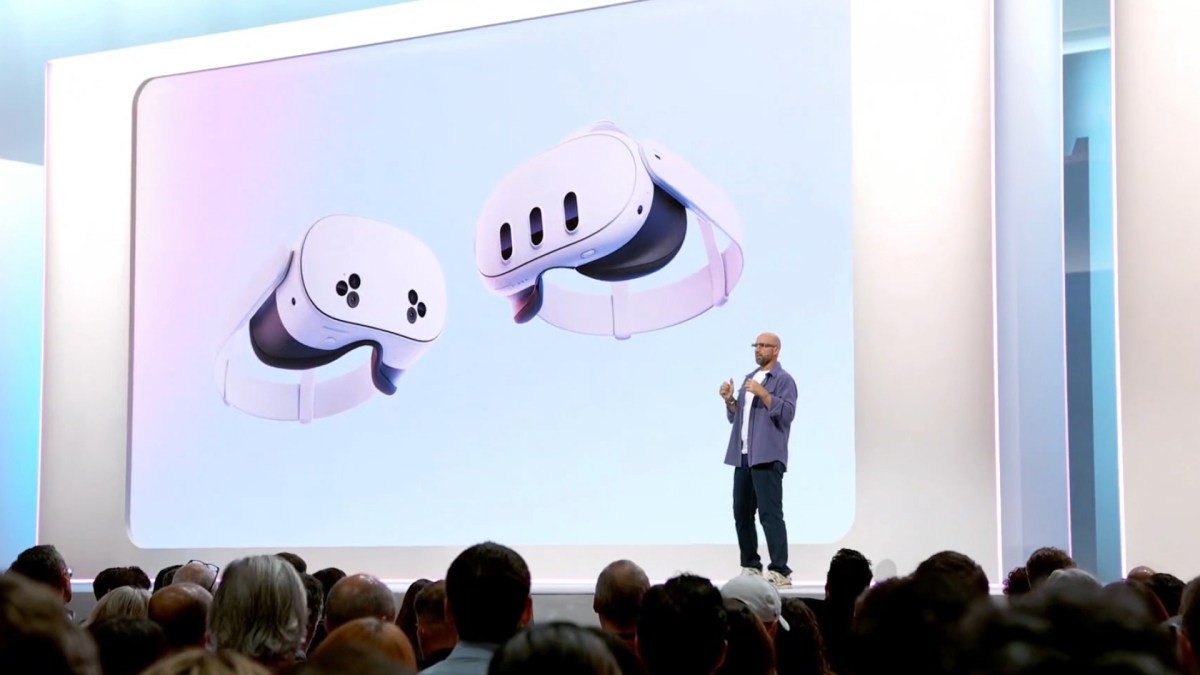In recent times, Meta has been at the forefront of technological advancements, particularly in the realm of augmented reality (AR) and mixed reality (MR). This year, one of the standout developments has been the introduction and demonstration of Orion AR glasses, a product that has not only showcased Meta’s commitment to innovation but also exemplified the company’s philosophy that “Code wins arguments.”
The journey of Orion AR glasses began earlier this year when Meta started offering real-life demonstrations. These practical, hands-on experiences have proven invaluable, offering insights far beyond what theoretical planning could achieve. As Mark Zuckerberg articulated in Meta’s initial letter to potential shareholders back in 2012, the real learning happens when a product is built, tested, and refined based on user feedback.
The Orion AR glasses are a testament to Meta’s dedication to revolutionizing how we perceive mixed reality hardware. Alongside Orion, Meta’s mixed reality hardware and AI glasses have seen significant improvements in quality and accessibility. These advancements have not only stabilized the platforms but also empowered software developers to innovate rapidly, enhancing everything from operating systems to new AI features. Such progress is crucial as the concept of the metaverse begins to take shape, leading Zuckerberg to predict that the upcoming year will be pivotal for Reality Labs, Meta’s research and development division.
### 2024: A Milestone Year for AI Glasses
The year 2024 marked a significant milestone for AI glasses, a journey that began in 2021 when Meta first ventured into the realm of smart glasses. Back then, these glasses were envisioned as a stepping stone towards the ultimate goal of developing AR glasses. While mixed reality headsets are on the path to becoming a versatile computing platform akin to today’s personal computers, AI glasses represent the evolution of mobile computing. Meta’s early adoption of real-world testing has been instrumental in accelerating this progress.
One of the most profound revelations has been the realization that glasses are the ideal form factor for AI-native devices. In fact, they may well be the first hardware category to be defined by AI from inception. For many users, glasses are the natural home for an AI assistant, particularly when the system is multimodal—capable of understanding and interacting with the world around the wearer.
### The Rise of Personalized AI Assistants
As we stand at the beginning of the S-curve for AI glasses, the opportunities seem limitless. Looking ahead to 2025, the evolution of AI assistants is poised to transform them into proactive helpers, rather than reactive tools that only respond to prompts. Meta’s Connect event showcased how Live AI on glasses can become an active participant in daily tasks. With the rollout of this feature in early access, users will experience the first steps towards a new kind of personalized AI assistant.
Meta’s vision doesn’t stop there. The company is at the center of an industry-wide push to create AI-native hardware. While phone and PC manufacturers are racing to integrate AI assistants into their products, Meta is focused on building devices that are AI-native from the ground up. Glasses are expected to lead this transformation. Michael Abrash, Meta’s Chief Research Scientist, has long advocated for the potential of personalized, context-aware AI assistants on glasses, and this vision has been a guiding force for Meta’s research teams.
### Advancements in Mixed Reality
Mixed reality has also witnessed considerable advancements, driven by putting the right products in the hands of users. The Meta Quest 3 headset, for instance, has seen continuous improvements with each system update. This iterative approach has extended to the Quest 3S, making it a superior headset compared to its predecessor at launch. The Quest 3S has become an attractive option for a broader audience, as evidenced by strong sales over the Black Friday weekend. As more people activate their headsets over the holiday season, the trend of new users exploring diverse applications and experiences is expected to continue.
The influx of new users, particularly younger audiences, has led to increased interest in social and competitive multiplayer games, as well as freemium content. Titles like Skydance’s BEHEMOTH, Batman: Arkham Shadow, and Metro Awakening have demonstrated the capability of modern headsets to deliver immersive gaming experiences previously unattainable.
### Enhancing the Social Experience in the Metaverse
As the user base for mixed reality grows, so does the quality of social interactions within these virtual environments. Meta’s ultimate goal with Reality Labs is to create the most social platform ever—a vision that has driven the development of the metaverse. In 2024, significant strides were made in this direction, including improvements to Horizon Worlds, Meta’s virtual reality platform, and the introduction of the next-generation Meta Avatars system. These advancements have allowed users to represent themselves across Meta’s applications and headsets, offering a glimpse of the social metaverse’s potential.
The popularity of Horizon Worlds among new Quest 3S users underscores the demand for immersive social experiences. As more users create Meta Avatars and explore virtual worlds, the metaverse is gradually taking shape as a vibrant social space.
### The Future of Mixed Reality and Entertainment
The mainstream adoption of mixed reality has illuminated the exciting possibilities that lie ahead. One emerging trend is the use of mixed reality for multitasking, such as watching videos while performing household chores. This trend highlights the appeal of having a virtual screen that can be placed anywhere in the physical world. New features like YouTube Co-Watch have further demonstrated the potential for social entertainment experiences in the metaverse.
Renowned filmmaker James Cameron’s involvement in producing 3D content for Meta Quest underscores the growing interest in immersive storytelling. While 3D films have been around for decades, MR headsets offer an unparalleled viewing experience. As more people acquire headsets, the potential for groundbreaking 3D content is greater than ever.
### Horizon OS: Building the Future of Computing
Meta’s vision for Horizon OS is to create a versatile computing platform capable of running diverse software and catering to a wide range of users and creators. Recent updates, including 2D/3D multitasking, improved hand tracking, and Windows Remote Desktop integration, have set the stage for this ambitious vision. Horizon OS aims to support a spectrum of experiences, from immersive VR to traditional 2D screens, and the developer community is pivotal to its success.
### Orion and the Path to Augmented Reality
The next significant step towards the metaverse involves combining AI glasses with the true augmented reality experience showcased by Orion. This groundbreaking technology provides a glimpse into the future, much like the early personal computers did in the 1970s. Orion’s demonstrations have been a highlight of 2024, offering a preview of the next computing platform.
The impact of Orion will be realized in future products, as Meta continues to refine and enhance AR glasses based on user feedback. Years of research and experimentation laid the foundation for Orion, but the pace of progress is expected to accelerate as Meta gains more insights from real-world usage.
### Conclusion: Accelerating Towards 2025
The past decade at Reality Labs has reinforced the importance of building and learning from real-world usage. While not every product may become an instant success, each iteration provides valuable insights. The success of mixed reality on Quest 3 and AI on glasses has demonstrated the potential for transformative experiences. As 2025 approaches, Meta is poised to accelerate its efforts, delivering innovative devices, engaging experiences, and unlocking new opportunities for users and developers alike.
For more Information, Refer to this article.
































